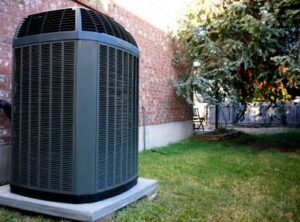Dealing with a clogged sewer drain is a nightmare no one wants to face. The moment you notice water backing up or a foul smell coming from your pipes, it’s a clear sign something’s gone wrong. In this article, we’re going to cover the eight most common reasons for sewer drain clogs. This will give you the info you need to prevent a problem from even happening.

8 Common Reasons for Sewer Drain Clogs
So, what are the most common reasons for sewer drain clogs in the first place? Knowing what to watch out for can help you avoid these plumbing disasters altogether.
1. Grease and Fat Buildup
It might seem harmless to pour leftover cooking oil or grease down the kitchen sink, but this habit can cause big problems over time. Grease doesn’t just flow smoothly through the pipes; it cools, hardens, and sticks to the inside of the pipes. As the layer of grease builds up, it restricts water flow and eventually leads to a blockage.
A good rule of thumb? Always dispose of cooking oil and grease in the trash. Let it cool, then toss it out. It’s one of those small changes that can save you from a major plumbing headache.
2. Tree Roots Invading Pipes
Nature can be a lot more invasive than we sometimes realize. Tree roots, for example, are one of the most common culprits behind a sewer drain clog, especially in older homes. Trees naturally grow toward water sources, and if there’s even the smallest crack or leak in your sewer pipe, roots will start to creep in. Once inside, they expand, block the pipe, and can even cause the pipe to burst if left unchecked.
Regular maintenance and inspections, especially if your home is near large trees, are key to keeping roots from wreaking havoc on your plumbing.
3. Flushing Non-Flushable Items

We’ve all heard it before: “Only flush toilet paper and human waste.” But how often do people actually follow that rule? Many products like wet wipes, paper towels, sanitary products, and even cotton swabs get tossed into the toilet. Even if a package says “flushable,” it doesn’t mean the item is safe for your pipes. These materials don’t break down as easily as toilet paper, leading to clogs that can be a serious hassle to clear.
Next time you’re tempted to flush anything other than toilet paper, remember that it could cause a blockage. It’s best to keep a wastebasket nearby for anything that isn’t meant to go down the toilet.
4. Foreign Objects in the Drain
Let’s face it, accidents happen. Whether it’s a child flushing a toy, a wedding ring slipping down the sink, or food scraps going down the wrong drain, foreign objects can quickly cause a clog. When something larger than your typical waste enters the drain, it can get stuck and block water from passing through.
Prevent this by using drain covers or traps to catch any unintended items before they make their way into the pipes.
5. Hair Buildup
This one is a biggie, especially in households with multiple people. Hair is notorious for getting stuck in bathroom drains and forming clumps that restrict water flow. Over time, it can create a nasty blockage, often combined with soap scum and other debris. It’s one of the most common causes of slow drains in showers and sinks.
To avoid this, use a drain catcher specifically designed to trap hair and clean it out regularly. It might not be glamorous, but it’s a lot easier than dealing with a full-blown clog later on.
6. Sagging Sewer Lines
Sometimes the problem isn’t what’s going into your drains, but the condition of the pipes themselves. Older sewer systems, especially those made of clay or cast iron, can sag or “belly” over time due to the shifting soil or ground conditions. When this happens, waste can start to collect in the sagging section, eventually leading to a clog.
Unfortunately, this isn’t something you can prevent yourself. If you suspect your pipes are sagging, a professional plumber can inspect and determine the best course of action.
7. Soap Scum Buildup
Soap might seem harmless, but over time, it can cause a surprising amount of buildup inside your pipes. When soap mixes with hard water, it leaves behind a residue known as soap scum, which sticks to the sides of your pipes and can trap other debris. This is especially a problem in shower and bathroom drains.
To help minimize soap scum buildup, consider using liquid soap instead of bar soap and regularly clean your drains with hot water and a mild cleaning solution.
8. Excessive Toilet Paper Use
We’ve saved the best (worst?) one for last. This is perhaps tops the list of common reasons for sewer drain clogs. While toilet paper is designed to break down in water, using too much at once can still cause a clog, particularly in low-flow toilets. If the paper doesn’t dissolve fast enough, it can form a blockage. This can be especially problematic in households where kids may be prone to overloading the toilet.
The best way to avoid this is to use toilet paper conservatively and ensure it’s given enough time to break down in the water before flushing again. If you know your home’s plumbing is prone to clogs, opting for a brand that dissolves quickly may be a smart move.
How to Prevent Sewer Drain Clogs
Now that we’ve gone through the common reasons for clogs, how do you prevent them from happening in the first place? There are several key plumbing maintenance tips out there. When it comes to preventing sewer drain clogs here are the ones to focus on:
- Mind what goes down the drain – Avoid pouring grease, oil, and large food scraps into the sink.
- Be cautious of what you flush – Only flush toilet paper and waste.
- Install drain catchers – Use these in sinks and showers to catch hair and debris.
- Schedule regular inspections – A professional plumber can check for root invasions, sagging pipes, and other issues before they become major problems.
- Rinse your drains regularly – Running hot water through your drains can help prevent buildup from sticking to the pipes.
Taking a little extra care in how you treat your drains can go a long way in avoiding costly repairs down the line. A little prevention is always easier (and cheaper) than dealing with the mess a clogged sewer drain can cause!



